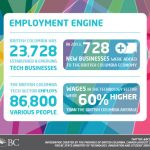Liberal government may limit the stock option benefit deduction
Since the Liberals won a majority in the election last month, more focus has been centered on the tax proposals outlined in their election platform. One proposal was to limit the stock option deduction available to $100,000 per year.
In an earlier post, we explained generally how stock options are taxed for employees:
When an employee exercises an option, an employment benefit is realized calculated as the difference between the fair market value (“FMV”) of the share on the date of exercise and the exercise price. If the company issuing the option is a Canadian-controlled private corporation (“CCPC”), the employment benefit will not be added to the employee’s income until the year the share is sold. In all other cases, it is included in the employee’s income right away. For income tax purposes, if the exercise price of the option is equal to the FMV of the underlying stock at the date the option was issued, or in the case of a CCPC option if the share is held for at least two years after exercise, only half of the employment benefit will be taxable (the “Stock Option Deduction”), such that the employee has capital gains-like treatment on the employment benefit. The employment benefit is otherwise taxed as regular employment income.
The Liberal party tax platform includes a substantial change to the Stock Option Deduction, limiting it to a maximum of $50,000 each year. What this means, is that the employment benefit realized on stock options in a given year, to the extent that it is in excess of $100,000, will no longer receive capital gains like treatment.
If you think this limit will apply to you, should you exercise your options today to avoid this new tax measure? That depends on how much of a risk you are willing to take to potentially save tax on an eventual exit. Recall that once you exercise the option, a taxable employment benefit is established – whether tax is paid immediately, or on the eventual disposition of the share if the company issuing the share is a CCPC.
If the option is exercised and the employee holds the shares for a while, until there is an exit, then the employee realizes a capital gain or loss depending on whether the value of the shares has increased or decreased since the option was exercised. If the value has gone down, the employee will be faced with an employment benefit and a capital loss (which is generally not going to reduce the tax payable on the benefit).
Right now, the extent of any changes to the Stock Option Deduction, and the exact implications of those changes are unknown, and will remain unknown until the new government introduces legislation to amend the Income Tax Act (Canada).
—
If you have questions about stock options, or any other tax matters, please contact one of our tax lawyers.



